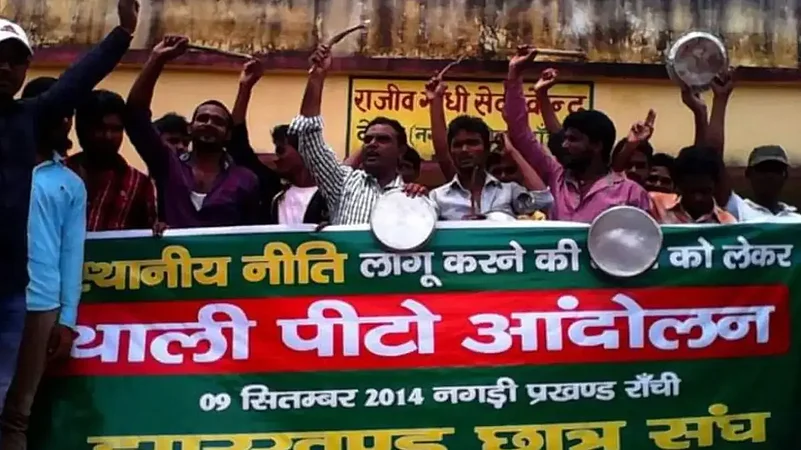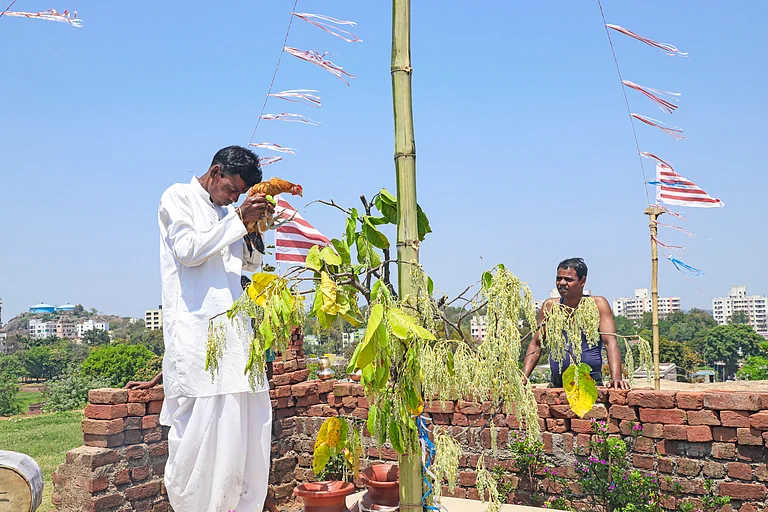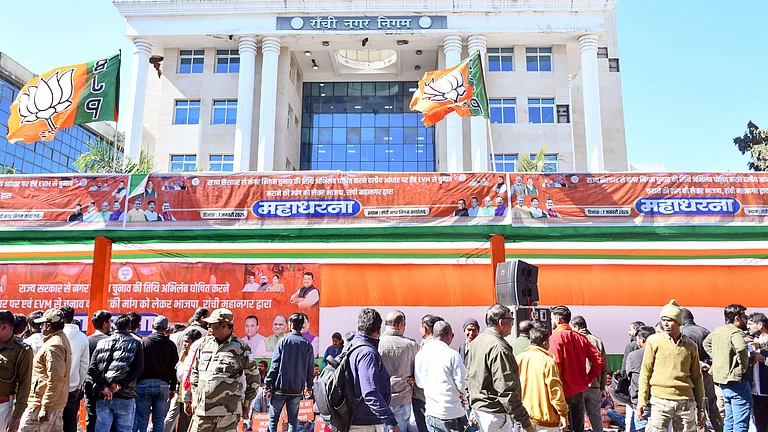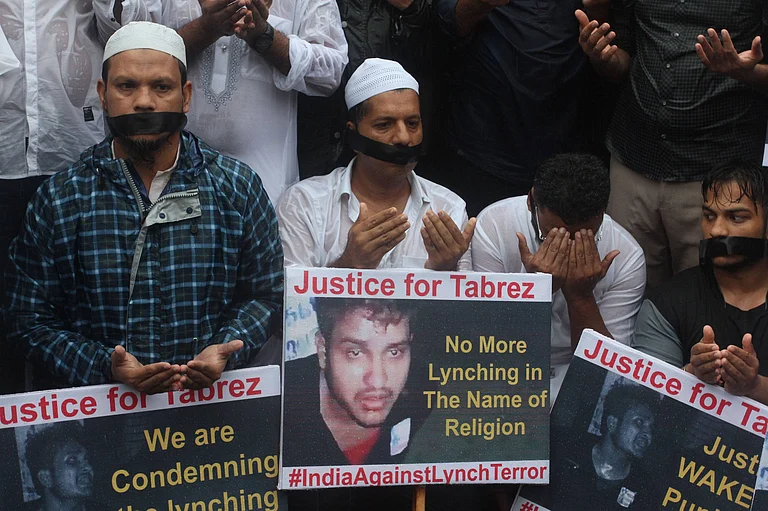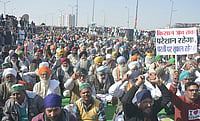The Hemant Soren-led Jharkhand government recently approved a bill that would make 1932 khatiyan —land records— the basis for a person being considered a “Jharkhandi”.
A person would be given a Jharkhand domicile —thus making him a Jharkhandi— if they or their ancestors are mentioned in the 1932 land records of the state. For the landless, the authority to issue domiciles would be vested with gram sabhas.
The making of 1932 land records the basis for domiciles has been a longstanding demand of a section of Jharkhand’s population, who consider it key to the identity of the state's ‘moolvasis’ — original inhabitants. This was also central to the Jharkhand statehood movement, which was waged on a local versus outsider plank, arguing that ‘outsiders’ had dominated the local and original inhabitants of the state in various spheres of life.
While this section is celebrating the Soren government’s decision, political observers have flagged it as a nativist and a populist move aimed at boosting the political standing amid the ongoing political uncertainty in Jharkhand.
Soren faces potential disqualification from the Jharkhand assembly in an office of profit case filed by the Bharatiya Janata Party (BJP) against him.
It's alleged that Soren procured stone mining leases in his name while being the chief minister and holding the mines portfolio. The BJP has sought his disqualification under provisions of the Representation of the People Act.
The issue was referred to Governor Ramesh Bais and by him to the Election Commission (EC) for its opinion on the case. The Article 192 of the Constitution of India dictates that, in such cases, the Governor has to act as per the EC’s opinion. The EC has conveyed its opinion and while Bais has not made it public, it has been reported earlier that EC has recommended that Soren be disqualified.
The suspense over Soren’s membership of the assembly plunged his Jharkhand Mukti Morcha (JMM)-led coalition into crisis, which also comprises Congress and Rashtriya Janta Dal (RJD). Fearing poaching of its MLAs by the BJP, the alliance parked its MLAs in a resort in neighbouring Chhattisgarh’s Raipur earlier this month.
In such a politically uncertain climate, observers have said that Soren’s 1932 khatiyan decision is a ploy to strengthen his political standing, boost popular support by invoking nativism, and cornering BJP and even his allies, who risk being labelled anti-Jharkhandi if they oppose or question the domicile policy.
However, the 1932 khatiyan as a basis for domicile does nothing for the state’s development and remains a distraction from the allegations of corruption Soren's government faces, says Ranchi-based Anant Kumar, referring to the office of profit case against Soren in which he faces potential disqualification.
“This is identity politics and a way to stay politically relevant. This policy will not improve the development scenario in the state in any way. In fact, it will lead to more marginalisation as many people will be deprived of several rights,” says Kumar, head of rural development program at Xavier Institute of Social Service, Ranchi.
Jobs and employment opportunities are expected to be limited for non-domiciled people in Jharkhand because of reservation for locals. Such people would also be out of government schemes or tenders requiring domiciles of applicants.
Kumar highlights that a large number of people arrived in Jharkhand after the Partition of India, many of whom are Sikhs who are some of the prominent businesspersons of the state. There are also many Muslims who arrived in the state after 1932 but have been here for multiple generations since.
“A large number of Sikhs arrived in Jharkhand and settled in cities like Ranchi, Dhanbad, and Bokaro after the Partition of 1947. Where will they produce the khatiyan from? There are also a large number of Muslims living here for decades but they would not be locals as they arrived after 1932,” says Kumar.
Besides making the 1932 land records the basis of domiciles, Soren government also approved 27 per cent reservation to Other Backward Classes (OBCs). This will take the reservation to 77 per cent in Jharkhand, well beyond the 50 per cent cap instituted by the Supreme Court of India. Legal experts have said that this move and the 1932 khatiyan domicile policy are not expected to survive judicial scrutiny. To escape this, the Soren government plans to ask the Union government to put these two laws —once passed by the state legislature— into the Ninth Schedule of the Constitution.
The Ninth Schedule of the Constitution comprises laws and provisions of states excluded from judicial scrutiny.
“This schedule was added by the First Amendment (1951) to protect the laws included in it from judicial scrutiny,” notes M Laxmikanth in his book Indian Polity, adding that there were originally 13 acts in it dealing with the land reforms and abolition of the zamindari system.
Once Soren asks the Narendra Modi government to include Jharkhand’s domicile and reservation policy in the Ninth Schedule, he would put the ball in the Union Government’s court and would be able to claim that he has done his part for the state and its moolvasis and it’s the BJP that’s stalling it. This would allow for the antagonisation of his principal opposition BJP in Jharkhand and boost his own standing.
However, a 2007 Supreme Court verdict ruled that the Ninth Schedule provides for protection from judicial scrutiny but it’s not a blanket protection. Ranchi-based advocate Abdul Allam tells Outlook that Soren’s moves are not expected to survive in the court of law.
He says, “There is no legal basis for this. Every law has to be read in accordance with the Constitution. The 1932 khatiyan domicile policy is contrary to the Constitution, including the concept of citizenship in Articles 5-11. The domicile policy is purely a political decision.”
Allam also noted that the 1932 domicile policy, which would make people living for two-three generations in Jharkhand but having arrived after 1932 non-locals, goes against the worldwide-recognised notions of naturalisation- and birth-based rights.
Kumar tells Outlook that rather than focusing on development, healthcare and education, the government is playing identity politics for political goal. He further says that the emphasis on tribal population is a manifestation similar to that of Hindu Rashtra advocated by Hindutva proponents.
“Scheduled tribes (STs) are around 26 per cent of the population — roughly one-fourth of the state. By pressing their claims at the cost of the rights of the rest three-fourth of the people, this domicile policy is not very different from the idea of Hindu Rashtra which also seeks to support one class at the cost of another’s rights,” says Kumar.
While as a policy and in the eyes of law, the 1932 khatiyan as a basis for domicile might not appear to be sustainable, it is a bold political move by Soren at a time when his leadership as well as government is in a shaky position.






